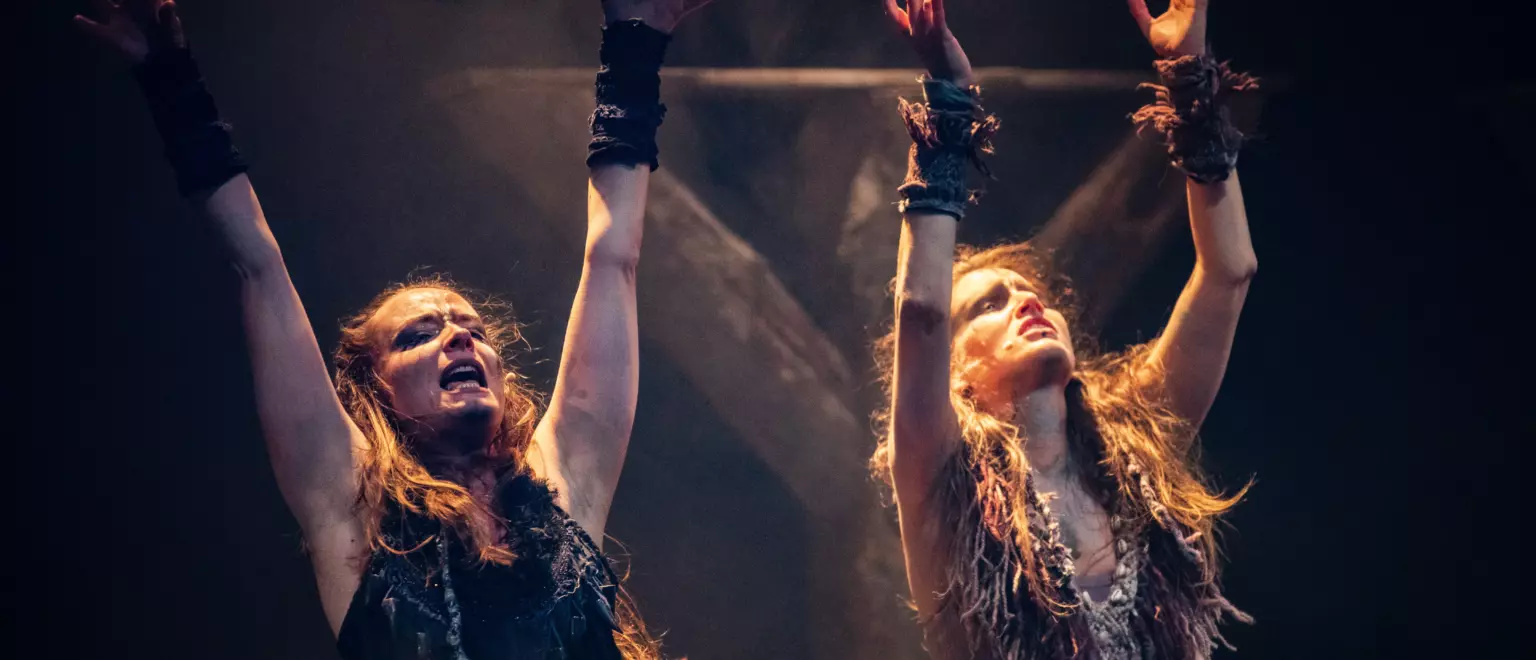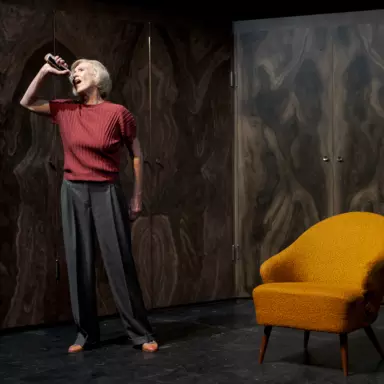Dramatic Poetry based on the work of Adam Mickiewicz
Gusla
Lubuski Teatr im. Leona Kruczkowskiego Zielona Gora
1h o. P., in Polish with German surtitles
Direction and choreography: Grzegorz Bral
TIP: Combination ticket valid for the opening performance and subsequent festival party!
The piece, entitled "Gusła" in Polish, is based on the second part and fragments of the fourth part of "Dziady" (funeral celebration or ancestor's celebration) by Adam Mickiewicz, probably the best-known Polish poet of the Romantic era. He is considered the most important of the Three Bards of Polish Romanticism in a time when the Polish national state did not exist and as Poland's national poet.
Renowned director Grzegorz Bral, founder of Wrocław's Teatr Pieśń Kozła, translated the romantic masterpiece of the Polish classic into the poignant, deeply emotional language of the theatre. "Gusła", which emerged from a ritual in honor of the deceased, not only addresses the grief and loss of a loved one, but also Poland as a country and the great ideals of the time. A musical performance with incredible costumes by Adam Łucki that will take your breath away.
One thing is certain: theatergoers have never seen such a Mickiewicz. Everything that the poet wrote about in parts II and IV of "Dziady" is reflected in elements of total theater, with the content emerging from the refined form of staging. The nine actors, who were dressed in spectacular costumes by Adam Łucki, present a frenetic spectacle on the big stage with ghostly lighting moods. Every word - spoken, shouted or sung - has its meaning in this hypnotic performance, as does every movement and gesture and even every single drop of sweat. It must not be forgotten that collaborating on such a dynamic performance required a tremendous effort from the actors, which, however, leads to an impressive result.
An innovative music drama that also makes reference to history and politics. The symbolism of the signs reflects the situation in Poland at the time of the partitions – the funeral rite stands, as director Bral himself explains it, "...for the downfall and death of Poland and an immeasurable longing".
Theatre and Literature
Aktualisiert am 15.03.23, 16:24 o 'clock


